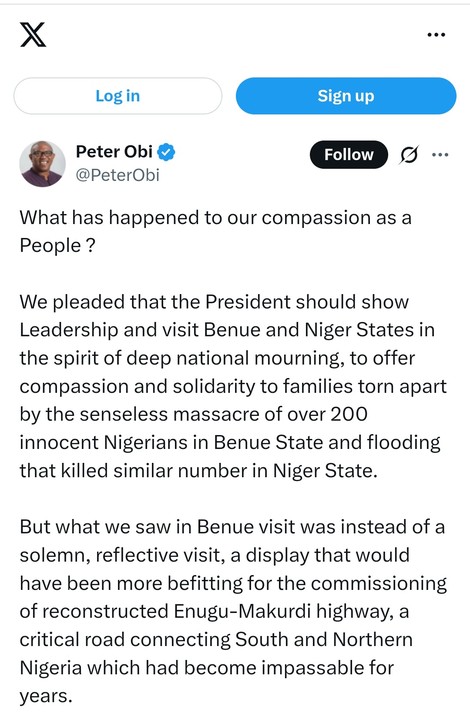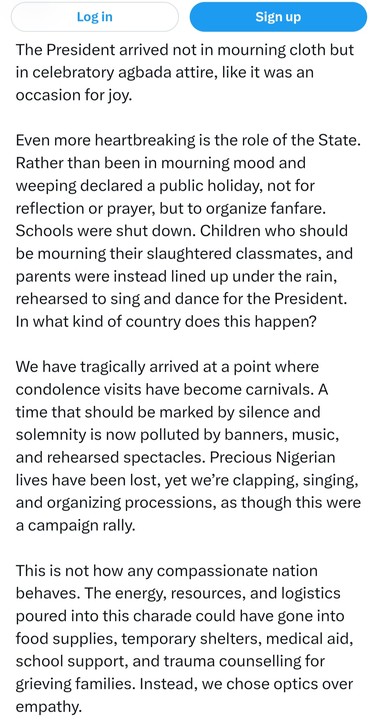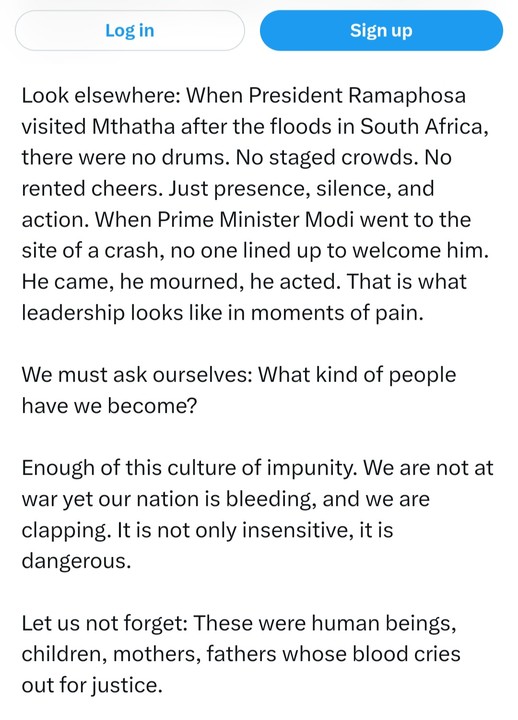Peter Obi has raised concerns about the lack of compassion in Nigeria. He said many people had hoped the President would visit Benue and Niger States to show care and support after over 200 people were killed in each state — one by violence, the other by floods. But instead of a serious and emotional visit, what happened in Benue was far from what people expected.
Obi explained that the visit looked more like a celebration. He said it would have been more fitting for a project launch like a newly reconstructed highway, not for mourning people who had lost their lives. He felt this was not the right way to respond to a tragedy.
He was disappointed that the President wore a rich traditional outfit that looked like something for a party, instead of dressing in a way that showed he was mourning with the people. It didn’t feel like a visit for grief—it looked like an event for joy.
Obi also criticized the Benue State government for how it handled the day. Instead of calling for prayers or reflection, they declared a public holiday to organize a big welcome event. Schools were shut down, and children who had lost classmates were made to dance and sing in the rain for the President. He questioned why such a thing would happen in any serious country.
He said this type of behavior turns what should be a moment of quiet sorrow into something like a parade. Lives were lost, but instead of silence and tears, there were banners, music, and organized cheering. To Obi, this shows a deep loss of empathy.
Obi said the time and money used to prepare for the President’s visit could have been spent on more important things—like food, temporary shelter, health care, or helping traumatized families. Instead, leaders focused on putting on a show for the cameras.
He compared Nigeria’s situation to other countries. For example, when South Africa’s President visited after a flood, he didn’t come with loud noise or a cheering crowd. It was a quiet visit. Likewise, when India’s Prime Minister visited a crash site, there were no rehearsals or big welcomes—just action and respect for the dead. That, Obi said, is what true leadership should look like.
He asked Nigerians to think deeply about how they now treat tragic events. The country is suffering, but people act like nothing is wrong. This kind of reaction is not only disrespectful—it’s harmful to the nation’s soul.
He reminded everyone that those who died were not just numbers. They were real people—children, fathers, mothers—whose lives mattered. Their blood is a cry for justice, not celebration.
Obi ended by saying that when a country starts turning pain into events that look like festivals, it’s a sign that something has gone wrong. But he still believes things can change, and that a better Nigeria is possible.










